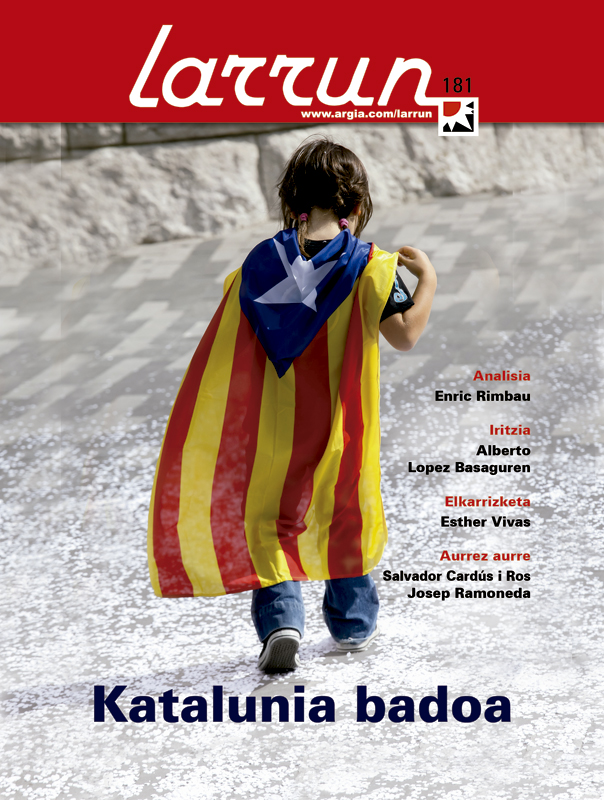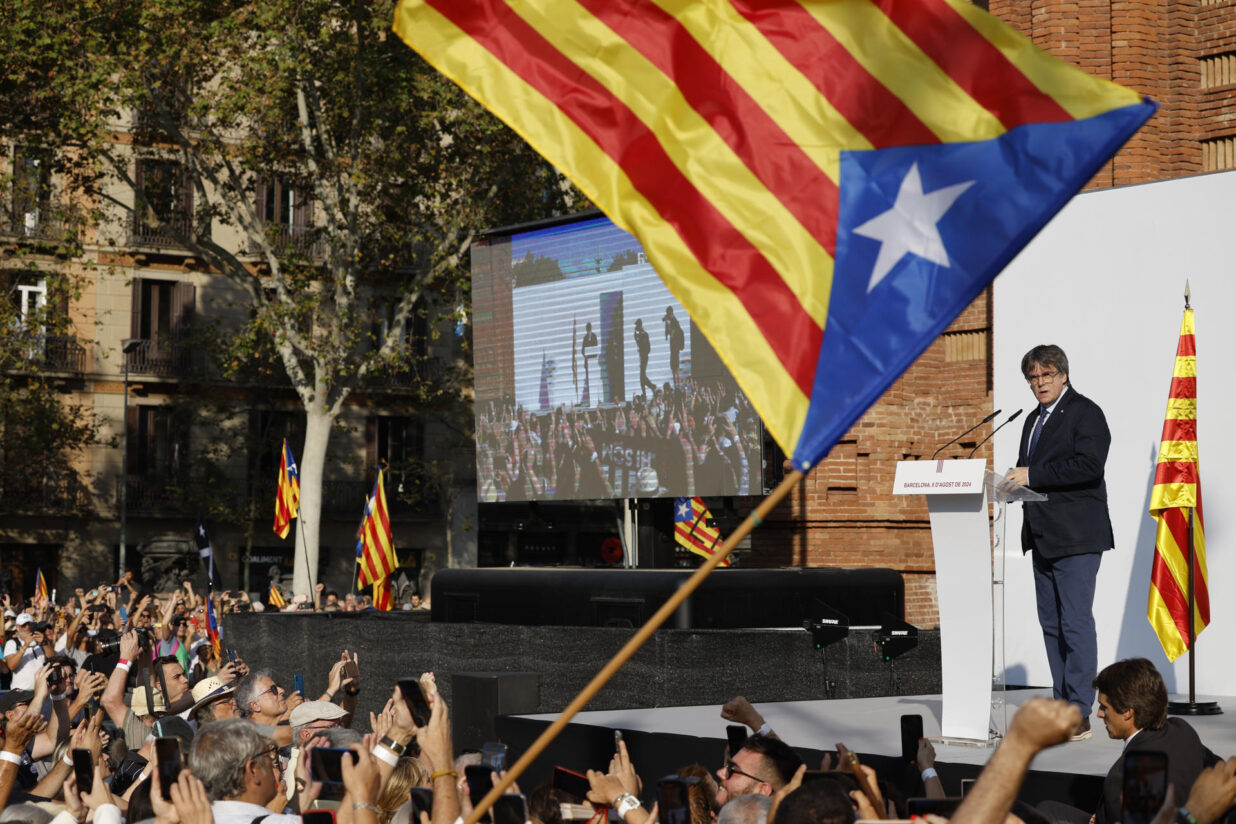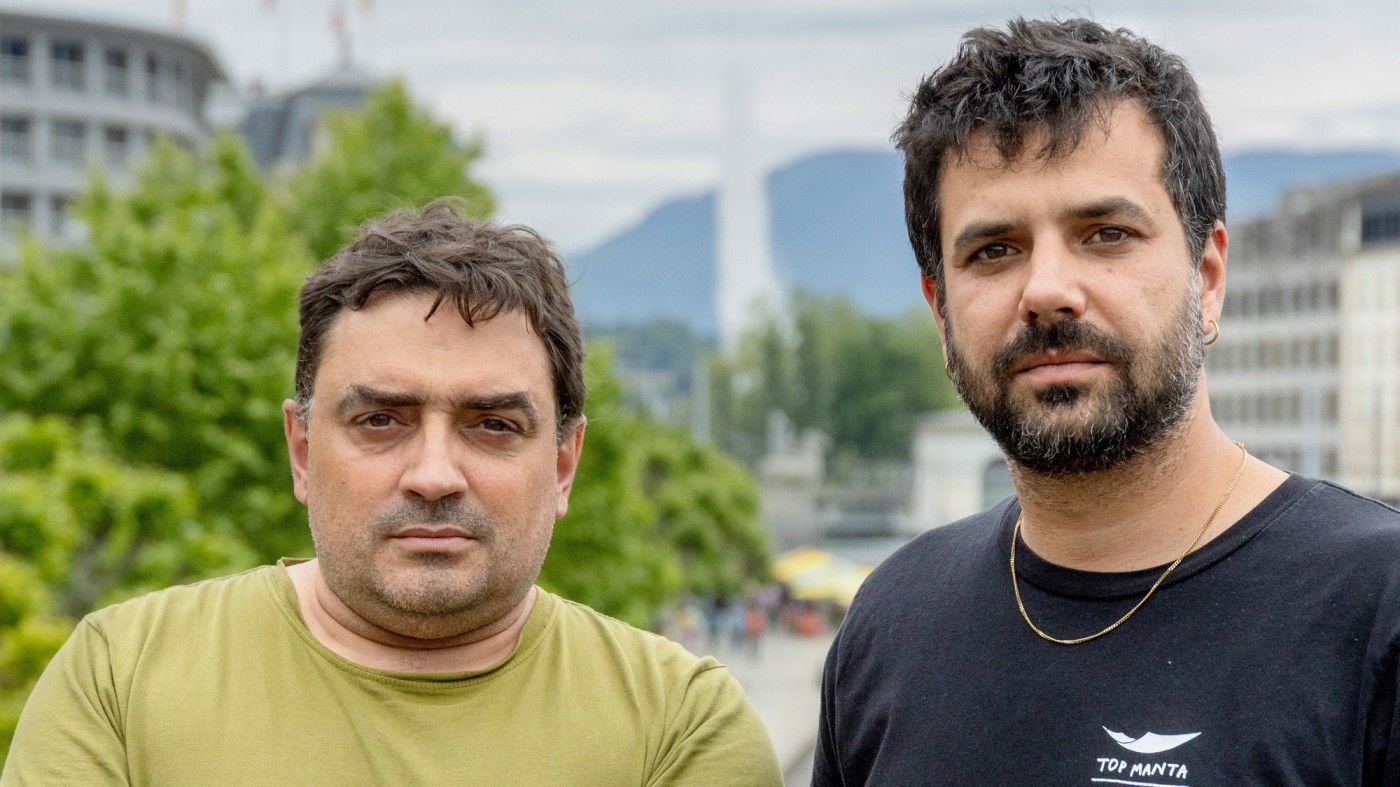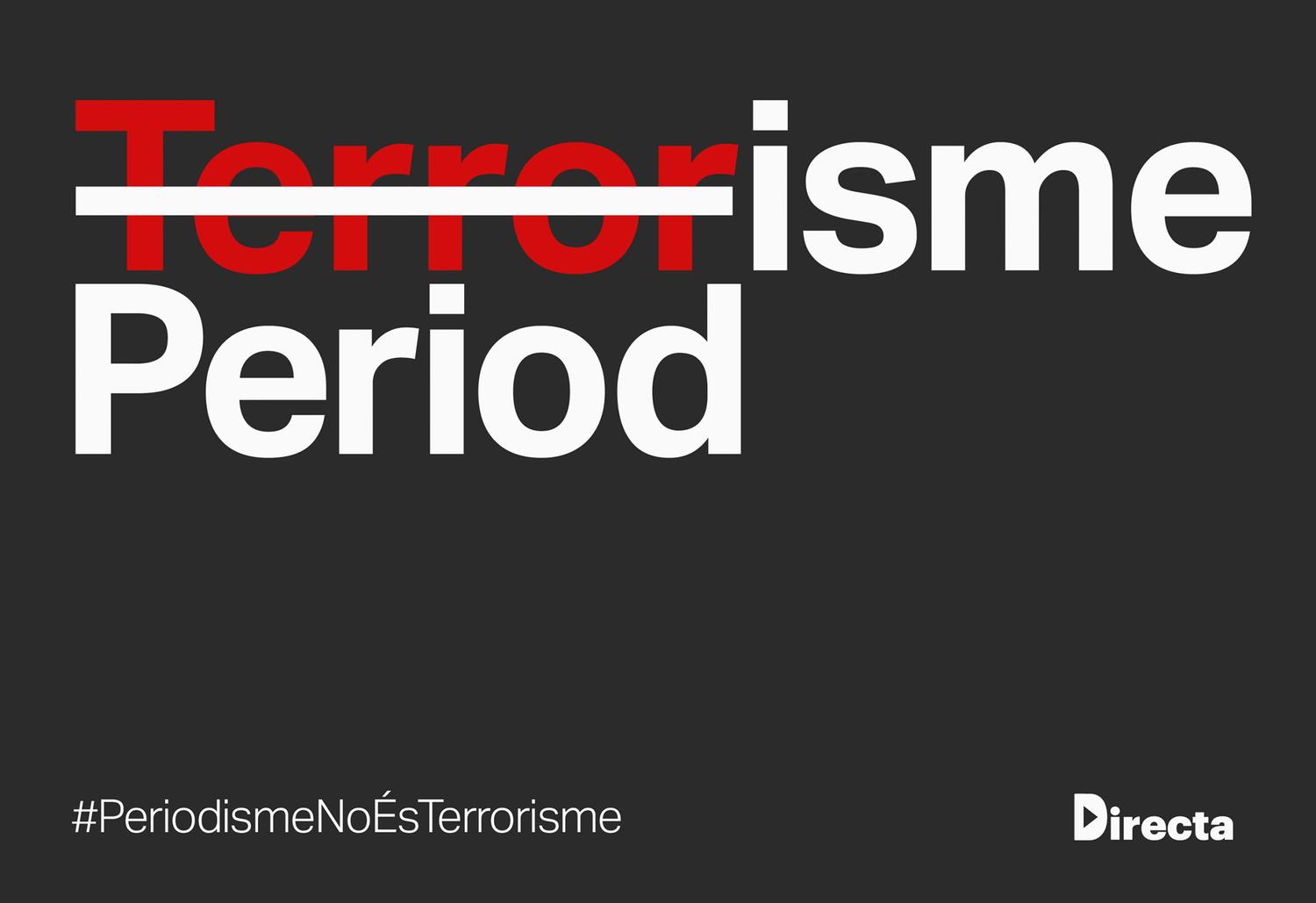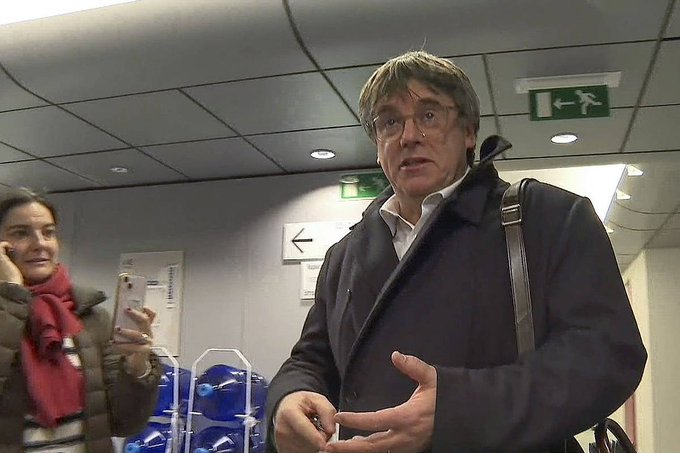A process without turning back
- About eight years ago I made an interesting dialogue – for their answers, not for my questions – with the Catalan philosopher Xavier Rubert de Ventós and in the next talk he told me about the possibility of an independent Catalonia, which sometimes historical processes are unpredictable and social dynamics are activated and accelerated suddenly. I could hardly imagine the prophetic accent of those words. Today, the independence debate is at the heart of the political agenda of Spain and Catalonia, something that years before would be amazing.
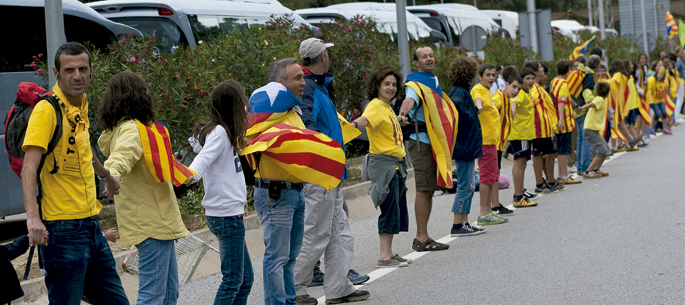
Immersed in a process of uncertainty, it is almost impossible to predict how it will end. But surely, nothing will be the same. The fiercest and most closed defenders of Spain’s unwavering unity know that what has been done so far is not worth it. The relationship between Catalonia and Spain is currently experiencing a systemic crisis and is the result of a series of reasons that, like all major crises, have aligned at a given time and at the same time.
It is important to specify where we can go, where we are and where we have come from. At the time we live, the usual pattern of Catalan political activity is broken. Since the Transition, hegemonic Catalanism began in the line of the agreements with the governments of Madrid. The Republican and Progressive Catalanism that emerged in the Second Republic was completely dismantled by the fascist uprising of General Franco and was destroyed in the subsequent 40-year dictatorship. During the Transition, Catalanism became possible, located between the work of reconstructing the soul of the people shattered by Franco and the pactist pragmatism. He took up the tradition of conservative Catalanism that in the early twentieth century gathered the Prat de la Riba and Cambo Liga. The synthesis was updated from Jordi Pule's megalidergo, at the hand of the CiU coalition. It was he who modified the architecture and melody of the model that would be hegemonic in the last quarter of the 20th century. The process of “national reconstruction” of pujolism and the modernization and parallel regeneration of the Spanish State. It was a relationship established in the “quid pro quo” mode. Catalan nationalism offered the economic moderation and modernity that was lacking for the Spanish State. In return, it achieved decentralizing reforms that gradually allowed the Generalitat to acquire new competences that were initially not much more than the office of the lehendakari. With a better one in his hand, he followed a strategy of more than two in the neighborhood.
In the shadow of this relationship, a system of parties based on bipartisanship emerged in Catalonia: CIU was the main party in Parliament and the PSC was the main opposition party in the large municipalities. The framework consisted of some aspects such as the hinge: ERC independentists, eco-socialists – heirs of the Euro-Communists of the PSUC – and PP.
As a result of this architecture, a financial and economic system closely linked to the main autonomic powers was implemented. And so, these Catalan structures, through subordinate political relations fueled by the high-level financial and functional structures of the Spanish State, created a framework of shared interests. The choice of these economic sectors was clear, in exchange for political offers of business opportunity.
Formula enters crisis
This system has entered into crisis and that is what those who want to curb the independence debate are demanding, with the third road that today is very little, not federal, not confederal, not quite the opposite. For many, the turning point was the destructive judgment of the Constitutional Court against the Statute of Catalonia, but I think that is simplification. It has certainly been an important agent, but I do not think it explains the current strong growth of Catalan independence.
In the second term of office of José María Aznar, with the PP by an absolute majority, the structures of the Spanish State completely lost the complexity of being heirs to the Franco regime and ended their process of modernization. Peripheral nationalisms were no longer inevitable evils, they were a hindrance. And the state began a recentralizing tension. The center no longer needed the periphery. The negotiation ended and the strategy of exchange with him.
After 23 years of office in Catalonia, Pujolism also showed signs of erosion, and the Catalan political scene turned. The three governments – PSC, ERC and ICV – led CIU to the opposition and fed its sovereign discourse in order to contradict, to a significant extent, the ERC pact with the socialists. At the same time, the sudden triumph of the PSOE of José Luis Rodríguez Zapatero brought the nightmare that Catalonia and Spain could agree a formula for a new relationship. But no, during his term of office the door to the statute was closed. The conservative Catalanism of the CIU wanted to normalize the presence of Catalonia in Spain and now saw how Spain ended its historical regeneration without achieving this historical objective.
To this bankruptcy must be added the chronic problem of the financial deficit and the continued contraction of the State for public investments in Catalonia. The fiscal deficit is unsustainable and bleeds the Catalan economy: Since Spain collects every year, EUR 16 billion has not returned to Catalonia. The fiscal deficit varies from 8% to 11% of Catalonia’s GDP, according to the INE.
This economic persecution, political weakness and the State’s lack of permanent loyalty to Catalonia are the food of independence. As in historical processes, there are several causes. It is therefore wrong to think that this growth is due to purely economic factors. And even more wrong is what the Mariano Rajoy Executive thinks, that by delaying time and waiting for the improvement of the Spanish economy, the fever of independence will be deactivated.
Mutation of the political map
All this has brought the political map of Catalonia upside down. CIU and the PSC, which have been hegemonic in Catalonia, have suffered a continuous setback in the elections. The nationalist federation has suffered a strong wear and tear for governing in times of crisis, despite the fact that good territorial expansion is still being maintained. But the inequality between the two partners is the biggest erosioner of the federation, especially due to the constant attitude of Union leader Josep Antonio Duran i Lleida, against the independence process and that discredits the change of direction of the federation. And that lack of credibility has benefited Oriol from ERC's junkies, a leader who has broken into the Republican party and brought inner peace. At present, the level of connection between lehendakari Mas and junqueras is very high.
The CSP suffers from a serious identity crisis. The lack of definition of its current secretary, Pere Navarro, and doubts about the determination of the right to decide have led the Socialists to a kind of nebula. They are defending in the Constitution a federal reform in a harsh isolation, without the support of the PSOE itself, and that does not help them either. This lack of definition makes the desertions of the most Catalanist sectors within it increasingly frequent, which consider that the party should turn towards more sovereign theses, as has been done by large sections of society.
The pp is also suffering from erosion and sees that the C`s (Ciutadans) party, led by Albert Ribera, can calmly obtain the vote of a clearly unionist party in the pp and in the PSC. C’s has been able to aesthetically recreate his discourse and with it has modernized the discourse of Spain that has no complexes in Catalonia. Finally, the Eco-Socialist ICV and the Independence CUP are competing to attract an electorate that is often called “anti-system”. ICV, however, has not yet properly defined its role. By the composition of his electoral body, he still shows a degree of indefinition of the political process opened in Catalonia. It is true that the party has accepted the rights of consultation and decision, but it still finds it difficult to define its decision. Within it there are supporters of independence, but also of federalism and, therefore, that brings them closer to the CSP's theses. The Cup, on the other hand, is an independent training, and in that sense it has a clear and concrete discourse.
And now what?
It is very complex to anticipate the political developments in Catalonia. Artur Mas continues to say that before the end of the year he will announce with consensus the date and question to be decided. Now the debate is on the question. According to ERC, partner of the Govern de Mas, the question and the answer have to be clear and ask about independence, as has been clearly demanded in the great mobilizations of citizens promoted by the Catalan National Assembly (ANC). CIU does not want to rule out softer formulas, rather than using the “sovereign State” or the “own State” as an “independent State”, but in favour of a consultation, but in the hope that it will articulate broader consensuses with sectors that are not independentistas.De one way or the other, Mas knows that
a step backwards can seriously undermine its credibility vis-à-vis its Basque alternative voters, which can facilitate even more. Despite competition, Republicans are aware that the collapse of CIU would not be good for the independence process, as conservative nationalists attract conservative economic and political sectors to the process that the party of junqueras would hardly attract. In part, that explains the parliamentary agreement between the two parties.
Whatever the question, if it finally comes to light, it will have to do with what degree of conviction the executive of Mas wants to carry out the consultation. In this regard, Oriol Junqueras and his party have made it clear that they are prepared to form a coalition government if the Mariano Rajoy Executive gives the green light to the consultation. In this sense, Republicans have supported the 2014 Generalitat budgets to give stability to the Catalan government in the face of the process.
The scenario for next year is therefore entirely open. It is very possible to end 2013 with the consultation question and the formal date. But in Catalonia, everyone is aware, especially among the most independent sectors, that Spain’s reaction can be immediate and forceful, either by challenging the same consultation, or even with more special measures.
From that moment on, the real strength of the independence movement will be seen, since what some have defined as a train crash, also used for an inspiring purpose of fear in Catalonia, can be inevitable. On the one hand, the sclerotic immobility of a declining state, which closes the doors to the slightest change. Duran i Lleida is a state that has no intention of giving in to the most moderate and favourable demands of the status quo. In fact, the demands of these sectors are only recent versions out of time to achieve what was not achieved with the reform of the Statute. For a very large sector of Catalan society they are no longer sufficient. The time for reforms has passed. And those who today defend third avenues, fundamentally, are turning to the starting point of statutory reform.
Therefore, with a clear question and a consultation date for 2014, it is possible to form a coalition government between the CIU and ERC that aims to push forward the independence referendum. No one says anything about plans B that may be faced with the total opposition that Spain is likely to demonstrate. But both Mas and Oriol Junqueras have made it clear that the will of the citizens to turn to the ballot box is going to be channeled into the ballot box. It is almost discarded to go to the next European elections in a large coalition, it is only in favour of the CDC and, above all, as a lifesaver of the planned shock, but neither the UDC, nor the ICV, nor the CUP see it as clear either by the ERC. The call for plebiscite elections leaves little room for manoeuvre. And before that, there are so many variables that can be included in the game, that doing any kind of foresight can be mere political fiction. The only thing that can be done at the moment is to wait for the agreement on the launch of the question. And that, for the time being, is only in the hands of the Catalan political formations. This will be the first unilateral sovereign decision and then nothing will be the same.
* Enric Rimbau is a journalist and political analyst.
(Translation: Xabier Letona)
Walk from a train station, two friends and a hug. This hug will be frozen until the next meeting. I'll come home, he'll stay there. There, too, will be free the painful feeling that injustice wants us to catch. Jesús Rodríguez (Santa Coloma de Gramenet, 1974) is a journalist,... [+]









